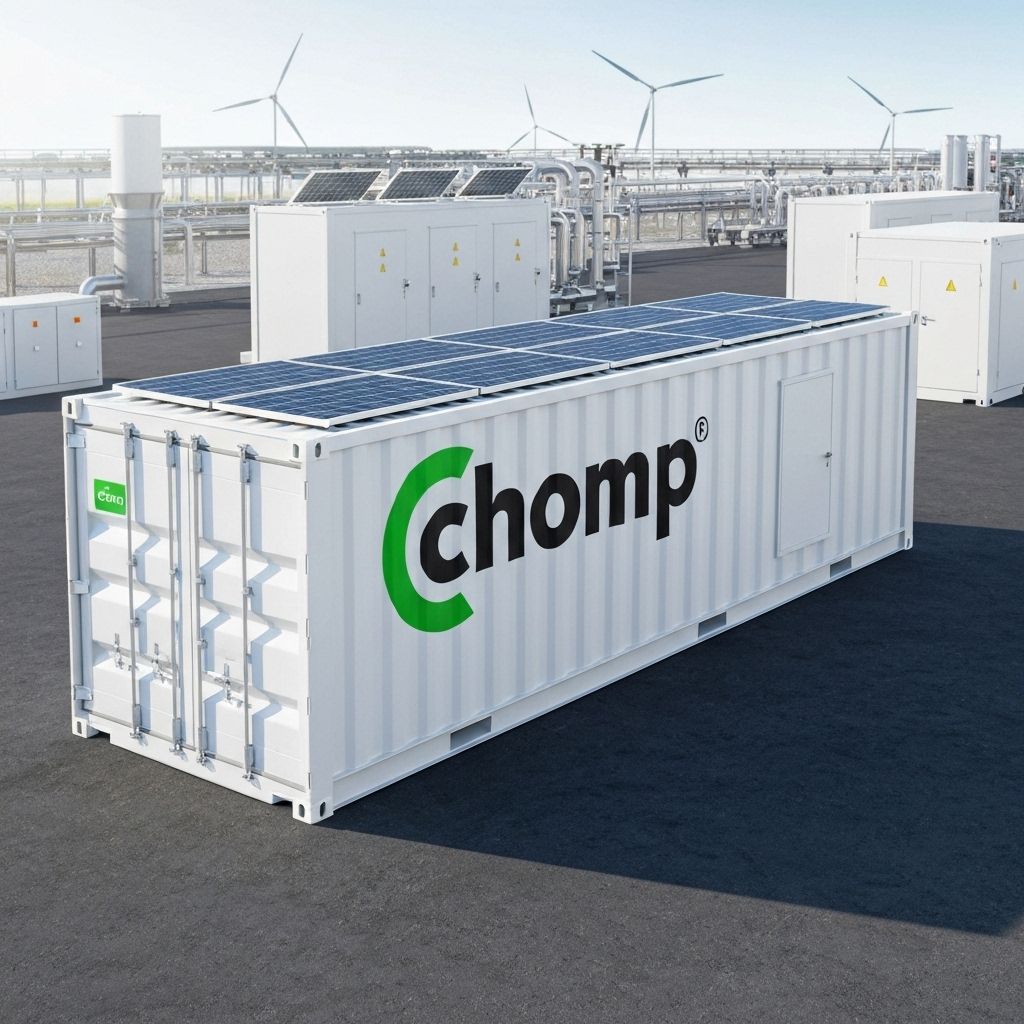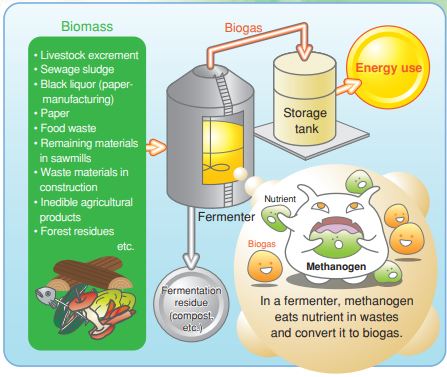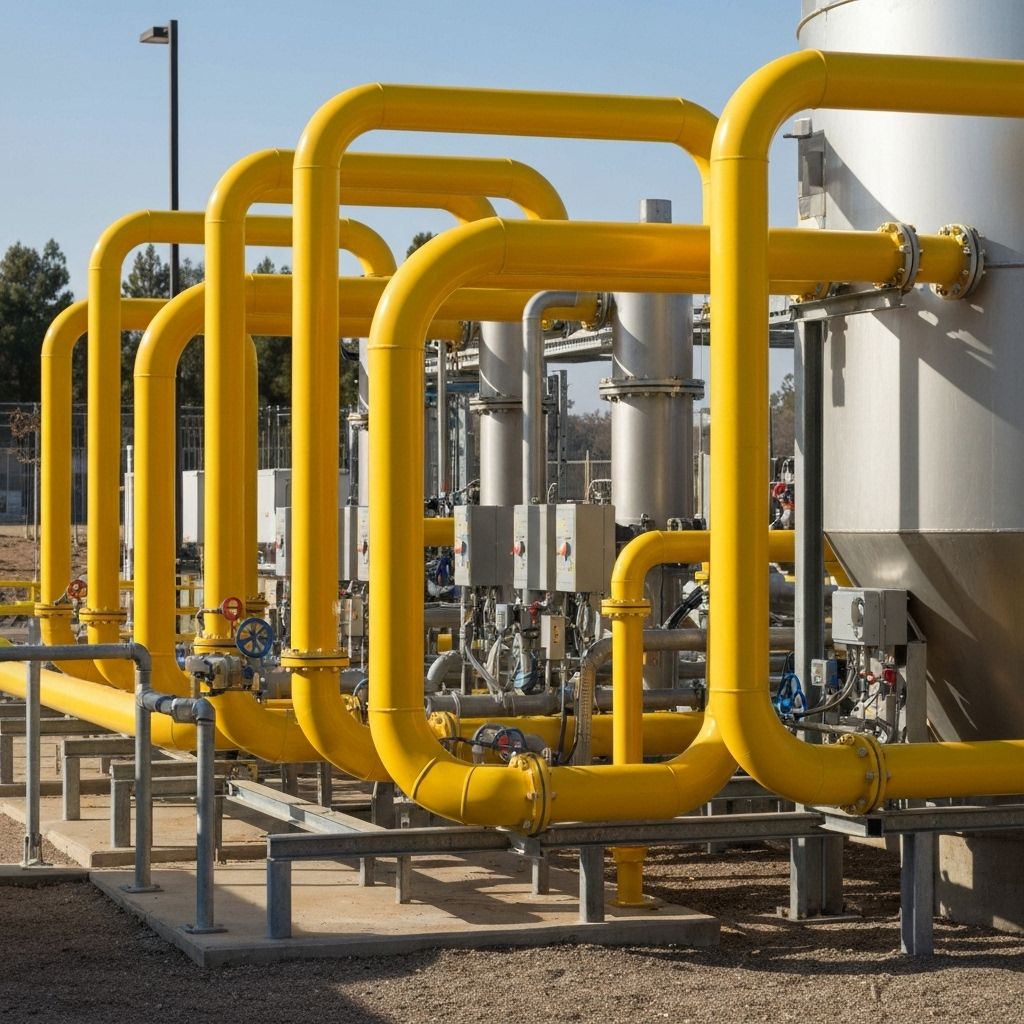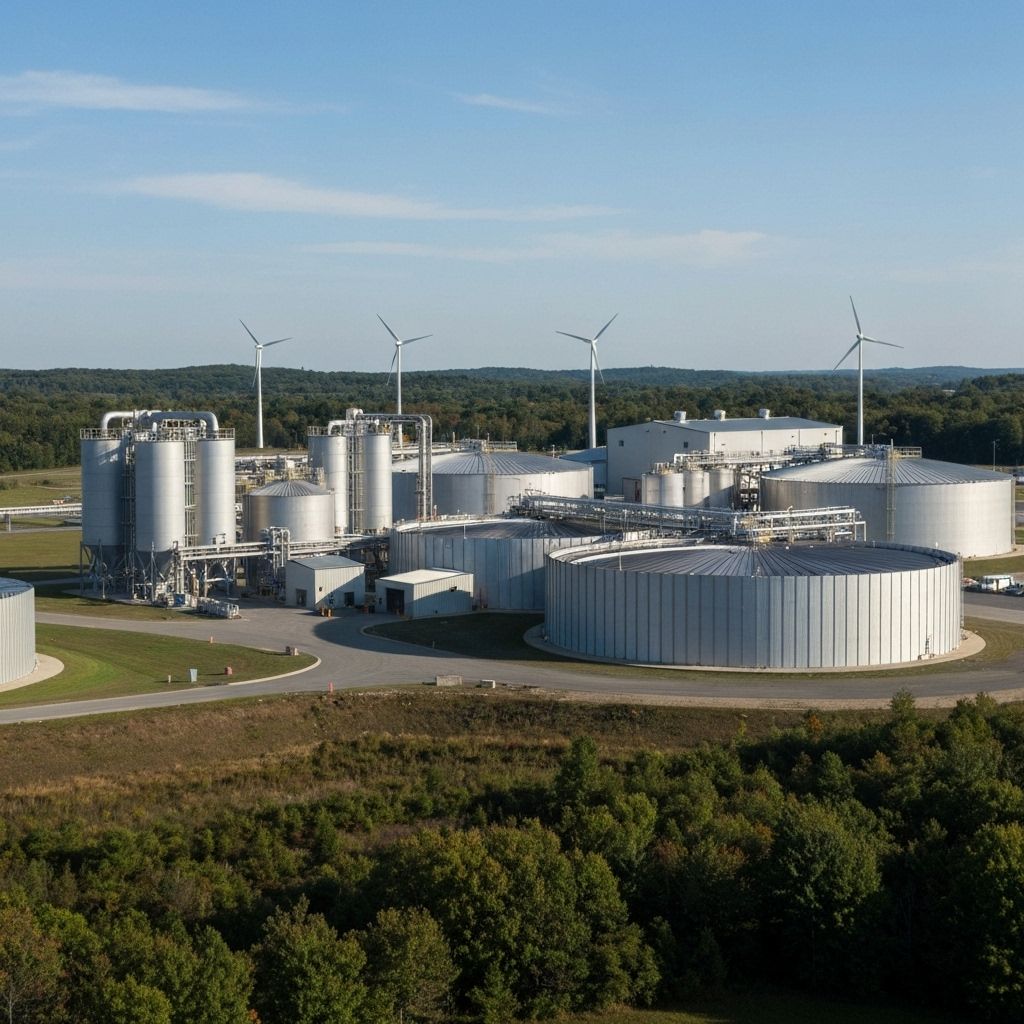Anaerobic Biodigester Project
Transforming Food Waste into Clean Energy & Fertilizer for New Canaan

Chomp's containerized biodigester system - delivered ready for installation
Federal Funding Available Through 2032
The Inflation Reduction Act (IRA) provides substantial tax credits for biodigester projects, reducing upfront costs by 30-50%.
How Anaerobic Digestion Works

Complete biogas production process: from diverse biomass inputs through anaerobic fermentation to renewable energy and organic fertilizer outputs
Collection
Food waste collected from schools, restaurants, and institutions
Digestion
Bacteria break down waste in oxygen-free tanks at 95-100°F for 3-4 weeks
Energy Production
Biogas captured and converted to electricity or renewable natural gas
Fertilizer Output
Nutrient-rich digestate used as organic fertilizer for farms and parks
Environmental Impact
95%+ GHG Reduction
Prevents methane emissions from landfills while generating renewable energy, achieving the highest emissions reduction of any food waste solution.
Equivalent to removing 990 cars from the road
Renewable Energy Generation
Biogas can power municipal buildings, be sold to the grid, or converted to renewable natural gas (RNG) for vehicles.
Enough to power 45 homes annually
Organic Fertilizer Production
Digestate is a nutrient-rich organic fertilizer that can be used on town parks, athletic fields, or sold to local farms.
High-quality organic soil amendment
Cost Analysis
Capital Investment
Annual Operating Economics
Payback Period: 2-4 Years
With federal tax credits, the system pays for itself in 2-4 years through tipping fee savings and energy revenue. Over 20 years, net savings could exceed $2.5 million.
Implementation Timeline
Phase 1: Planning & Design
6-9 months- Feasibility study & site selection
- Engineering design & permitting
- Secure federal tax credits
- Community engagement
Phase 2: Construction
12-18 months- Site preparation & foundation
- Equipment installation
- Electrical & gas connections
- Testing & commissioning
Phase 3: Operations
Ongoing- Staff training & hiring
- Waste collection logistics
- Energy offtake agreements
- Monitoring & optimization
Total Timeline: 2-3 Years
From initial planning to full operations. Starting now positions New Canaan to meet the January 2026 CT compliance deadline and maximize federal tax credit benefits before they phase out.
Proven Success Stories

UC Davis - Chomp Biodigester
UC Davis installed a Chomp biodigester in 2021 to process campus food waste. The system handles 20-30 tons per week, generates renewable natural gas for campus vehicles, and produces organic fertilizer for the campus farm.

Massachusetts Biodigester Network
Massachusetts built extensive biodigester infrastructure to support their 2014 food waste ban. The state achieved 7% total waste reduction - the only state to meet its goals among early adopters.
Ready to Transform New Canaan's Food Waste?
Join New Canaan in building a sustainable future with renewable energy and zero food waste.
Images courtesy of Chomp Inc.